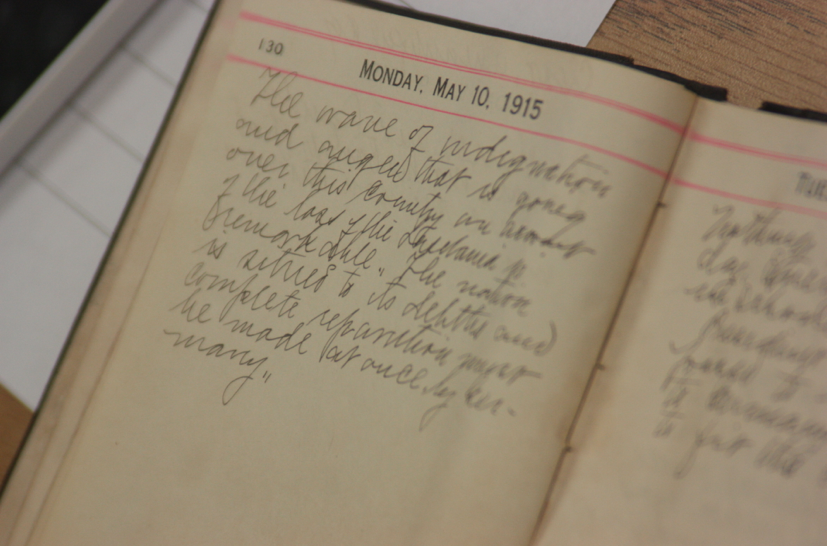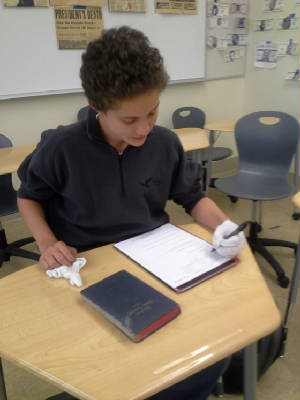|
|
Some time ago, an authentic diary covering 1914-1918 was obtained via an online auction site. The diary belonged to an educator named Z. Willis Kemp. Subsequently, an additional purchase was made and diaries covering diaries Kemp wrote during the interwar period. These pristine diaries reveal an incredible amount of detail, including what the reaction to world events was around the country. Written by a religious educator from the East Coast, the writing is highly revealing and, luckily, this man wrote almost every single day. This resource has never been explored academically, so student work is novel, and brings this story to life uniquely. There are models of instruction that exist to reinforce authentic discovery of primary sources. When original diaries
are explored, they often reveal subtleties that texts and conventional academic papers fail to disclose to the extent that
academicians forego access to primary materials. In other words, why solely read a timeline of events from a textbook
when one may read a timeline from the perspective of an individual who was there? Students pick this up immediately
and are engaged far more easily in such cases.
Alex Gouyet explores Z. Willis Kemp's 1930 diary. He is the first Palo Alto High School student to look
at this particular diary, which was sealed in bubble wrap before he took a look inside.
Alex explored the 1930 diary of Zachariah Willis Kemp. In it, he observed Mr. Kemp’s interest in his school’s sports teams. His school, Sanborn Seminary, was typical of schools in the region, which emphasized sporting contests and debates.
Kemp wrote sparingly about the depression, and Alex was curious enough to invite that if he could ask a question of Mr. Kemp it might be, “How did the depression psychologically affect your life?”
|
||||||||||||||


